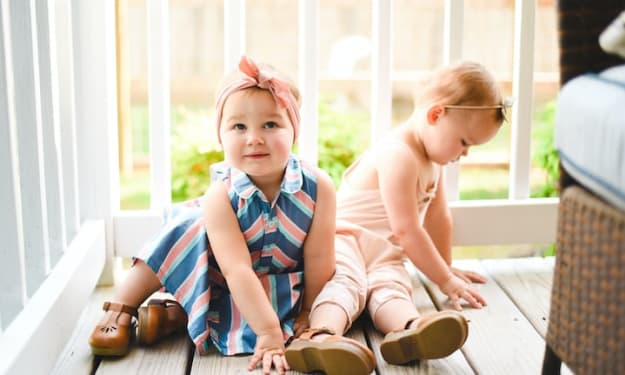
Moving out is typically the first thing that comes to mind when individuals consider what it means to live independently. There is a belief that those who continue to live at home after a certain age are less capable than their friends who have moved out since having your own residence is typically considered as the first step towards making your own way in the world.
Children who stay in their parents' houses are viewed as slackers and unable of taking care of themselves, while parents are viewed as indulgent and cowardly for allegedly allowing their children to freeload in their homes. Even in Eastern nations where such a living arrangement is more widespread, there are certain unfavorable judgments despite the fact that this is admittedly more of a Western viewpoint. Children in these homes are perceived as being compelled to follow archaic customs and to give up on bright futures in order to be decent children.
No matter how you slice it, those who reside with their parents run the danger of being perceived as either being unable, out of touch, or dependent on them. But let's pause and consider the current status of the planet. Across the board, prices are growing faster than ever. Everything now is far more expensive than it was 20–30 years ago, including housing, education, and childcare. Young people nowadays won't be able to move out and find a place of their own as easily as their parents were able to. It may now be impossible for even the generation who could afford to stay in their houses into old age. Many retirees find themselves outliving their funds as a result of longer life expectancies and higher costs.
If "leaving the nest" is becoming less and less realistic, perhaps we should reevaluate what independent life actually entails. It is possible to share a house while leading independent lives; not all people who live at home are scroungers who take advantage of their parents. I am more knowledgeable than most about that.
Being raised in an Asian home, culture did influence how we lived. Regardless of your financial situation, you always stayed with your family. But in our family, we also actively promoted independence. Basically, everyone was allowed to do as they wanted so long as they made some sort of effort to maintain the house. Bills and food were paid for by those who worked, but household responsibilities like cooking, cleaning, and child care were done by those who didn't. Depending on their particular situation, the retired relatives might do either or both. Everyone cohabitated, yet nobody depended on one another. There were no shared duties other than maintaining the dwelling.
Maybe couples should consider living together more often and it shouldn't be viewed as a bad thing. If done properly, everyone involved stands to gain, and it may very well provide you the edge you need to break into the workforce or unlock the door to a comfortable retirement.
Why this is important to keep in mind
I might be a little biased toward the arrangement because I've spent my whole life either living with or near to relatives. However, whether you intend to live at home, return home, or invite your parents or children over, there are a few things you should take into account. But keep in mind that the ability of every able-bodied adult to contribute to the home should always be the primary factor. Everyone participating should get along pretty well with one another; nobody should be dependent on anyone else, especially if they are able to contribute.
You may spend less money and receive more.
This is one of the most alluring aspects of staying with relatives. A greater level of living is possible while yet costing substantially less. If you're a youngster still living at home, staying put will help you to save a lot of money and improve your financial situation. Contributing to a percentage of the family costs will be far less expensive than purchasing or renting a home of your own. This will enable you to concentrate more on things like clearing off any outstanding college loans and accumulating your own money for things like a vehicle or establishing a family. If required, you may even utilize the money you save to improve your current home so that your husband and children can live there comfortably while spending less money.
Your financial load is lessened if you are a parent or grandparent. You won't have to worry about depleting your resources on home maintenance and can relax knowing you'll have enough money to enjoy retirement or take care of any medical requirements that may arise as you become older. With the money you save, it could also be easier for you to modify the property on your own to meet your advanced age and medical condition. If you do not have the additional obligation of maintaining a whole house on your own, adding items like handlebars, stairlifts, or even employing a professional carer are much more economical.
From personal experience, we were able to live a more comfortable existence by staying together rather than leaving for separate houses. Although the majority of my family members held middle-class occupations, we were nevertheless able to live in a huge bungalow home large enough to house five generations since everyone could focus their wages on one place.
In actuality, sustaining one larger property on many salaries was considerably less expensive than 6-7 smaller individual ones. Some of my family were even lucky enough to have a modest windfall of savings by selling or renting their prior properties and moving in, which allowed them to save more money while still living a better lifestyle. You can live more affordably and comfortably if you don't mind sharing some space with your family.
Moving back into or making modifications to an existing house to accommodate additional people may be challenging in some circumstances, especially when young families and senior citizens are involved. Additionally, it can make sense for various family groups to sell their existing residences and purchase brand-new ones that are custom-made to meet everyone's requirements. You will also be able to update your lifestyle and decrease your budget simultaneously if everyone involved is employed or in a position to contribute.
The Benefits of Mindfulness for Emotions
You may also experience emotional benefits from living with relatives. The first benefit is the assurance that your financial situation is more solid than it may have been had you gotten a house of your own. It is emotionally gratifying to be able to afford a better lifestyle at a lower cost than if you had struck out on your own, as well as to have money set up for emergencies.
If you have small children, you may relax knowing that they won't be left alone while you're gone. You won't have to worry about the people babysitting your child while you're at work, which will save you money on babysitters. You can afford to devote a little bit more time to your work if it is acceptable to everyone, especially if your parents or in-laws are watching the children. Knowing there is someone at home who can take care of your children if you and your spouse's occupations make it impossible to drop them off at school, pick them up, or watch over them during the week makes all the difference. This is especially true if that person took care of you when you were younger.
The emotional advantages may be considerably more satisfying for an elderly person who lives with relatives. Particularly for the elderly, feeling alone and powerless is something they suffer with very regularly. The ability to pay to costs and take care of their own care if required will make an older person feel less alone and less like a burden to their children and grandkids with this living arrangement in place. This contentment significantly improves an aging person's quality of life in many ways.
There is a lot of peace of mind for "middle generation" people as well. Since everyone is only down the hall, you will be able to observe how your children are faring, have the chance to influence the lives of your grandkids, and won't need to worry about your aging parents. Additionally, knowing that you won't have to give up on your retirement goals when the time comes will be beneficial. You'll be able to take that vacation or begin that new pastime with complete confidence that your funds will be unharmed.
Living with my complete family gave me the sensation that I was never alone, which I found to be enjoyable. Being able to sleep with the door unlocked because there were always people in the house meant that there was always food on the table, someone to eat with, someone to play with, and someone to chat to. I felt safe since everyone was constantly moving around and doing things.
Conclusion
I won't claim that staying at home or moving in with family is right for everyone; after all, various families have different dynamics and ways of life. Given that, it ought to be at least worth considering. If you're going to get carried away into the wild, there's no use in leaving the nest.
It could be more accurate to judge someone's independence today based on how effectively they build upon their nest rather than whether they stay in the nest or leave it. Living with family should not entail being unable to care for oneself or being obliged to follow traditions and practices. Instead, it ought to be seen as a joint choice made for the good of all parties.
Anyone who lives at home or with family may easily have an independent life, provided they are all willing to contribute and don't rely on anyone else. Even though you may share a home, you will probably work different jobs, maintain different schedules, and have the freedom to pursue different hobbies and passions thanks to the money you will save by pooling your resources. Even though this might not be to everyone's taste, there's no harm in taking a moment to think about it as a possibility, especially in this day and age.






Comments
There are no comments for this story
Be the first to respond and start the conversation.